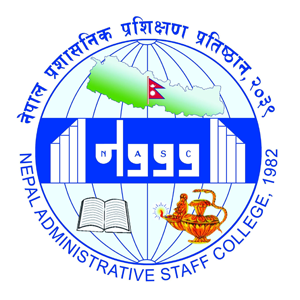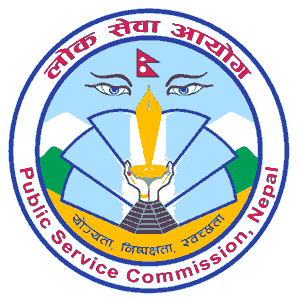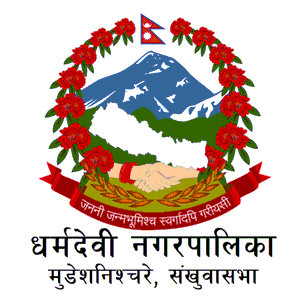Overview
The National Foundation for Development of Indigenous Nationalities (NFDIN - Adivasi Janajati Utthan Rastriya Pratisthan - आदिवासी जनजाति उत्थान राष्ट्रिय प्रतिष्ठान) emerged as a cornerstone for Indigenous rights and development in Nepal post-1990 democracy restoration. Established in 2002 under the Ministry of Local Development and chaired by the Prime Minister, NFDIN is a testament to the government's commitment to addressing the needs and concerns of indigenous nationalities, also known as Janjaties. This move was a response to the vocal demands from various Janjatie groups for a dedicated body that would focus on their welfare.
Foundation's Mission and Vision
NFDIN's creation was driven by the need to ensure the welfare and development of Nepal's indigenous communities. It operates as an autonomous entity, advocating for the interests and rights of indigenous nationalities. The foundation's mission encapsulates a broad spectrum of objectives, including:
-
Social and Economic Development: Implementing programs to enhance indigenous nationalities' social, educational, and economic status.
-
Cultural Preservation: Committing to the preservation and promotion of diverse languages, scripts, cultures, and histories that define the rich tapestry of Nepal's indigenous heritage.
-
Knowledge and Skill Promotion: Safeguarding traditional knowledge, skills, and technologies unique to Janjaties and assisting in their vocational application.
-
National Inclusion and Harmony: Fostering an inclusive atmosphere that encourages participation from all indigenous groups in Nepal's national development, ensuring a harmonious relationship among diverse communities.

Key Information:
-
Established by the Government of Nepal: NFDIN was founded in 2002, demonstrating the government's commitment to addressing the needs and rights of indigenous nationalities.
-
Autonomous Body: It operates as an autonomous institution, allowing it to operate independently in its mission to support indigenous communities.
-
Chaired by the Prime Minister: The Governing Council, NFDIN's supreme body, is chaired by the incumbent Prime Minister, ensuring high-level oversight and support.
-
Diverse Membership: The Governing Council comprises 93 members from various sectors, including ethnic organizations, parliamentarians, ministries, women from each development region, and ethnic industrialists and business people, ensuring a broad representation.
-
Cultural Preservation: NFDIN actively works to preserve and promote the languages, literature, arts, and cultures of Indigenous nationalities.
-
Educational Initiatives: It supports academic programs, including establishing schools teaching indigenous languages and offering scholarships to indigenous students.
-
Economic Development: NFDIN implements programs to enhance communities' economies through skill development, entrepreneurship, and sustainable practices.
-
Research and Documentation: The organization researches and studies various aspects of indigenous nationalities and publishes its findings to promote awareness and understanding.
-
International Collaboration: NFDIN partners with international bodies to share knowledge and resources for the betterment of Indigenous communities.
-
Health and Social Welfare Programs: It runs health and social welfare initiatives tailored to the specific needs of indigenous peoples, addressing issues like healthcare access and social support.
-
Legal and Advocacy Support: NFDIN advocates for the protection of the rights of indigenous nationalities, including intellectual property rights related to traditional knowledge.
-
Funded by the Government: While primarily funded by the government, NFDIN is also authorized to generate its resources, adding flexibility to its operations.
-
Information Dissemination: The foundation collects, manages, and disseminates information crucial for Indigenous communities, including educational, cultural, and development-related content.
-
Promotion of Indigenous Technologies: It works to preserve and promote traditional skills and long-tested indigenous technologies, ensuring their survival and relevance.
-
Capacity Building: NFDIN focuses on building the capacities of indigenous peoples through various training programs, enabling them to participate more effectively in national development.
The Plight and Resilience of Indigenous Nationalities
Indigenous nationalities in Nepal have long faced challenges, particularly under the Hindu hierarchical caste system, which marginalized them socially, economically, and politically. These communities, with distinct languages, religions, traditions, and histories, have contributed significantly to the country's multicultural identity. Despite historical attempts to suppress their cultural practices, indigenous nationalities have persevered, maintaining their unique identities and traditions.
Constitutional Milestones and Hopes for Equality
The journey towards recognition and equality saw a significant turn with the Interim Constitution 2007, which marked a shift towards a more inclusive, secular, and democratic Nepal. This legal framework promised to address longstanding issues of discrimination and inequality, sparking hope among Indigenous communities for a brighter future.
Demographics and Diversity
Nepal's indigenous nationalities, constituting 35.4% of the population according to the 2011 national census, showcase the country's rich diversity. From the Himalayan regions to the Terai plains, these communities embody various cultural, linguistic, and traditional practices, underscoring the importance of tailored development and preservation efforts.
Strategic Objectives for Sustainable Development
NFDIN's strategic objectives align with creating a more equitable society where Indigenous nationalities can thrive without losing their cultural identities. By working closely with these communities, the foundation aims to bridge development gaps, ensure educational and economic opportunities, and celebrate the cultural heritage that makes Nepal uniquely diverse.
Key Roles and Responsibilities of NFDIN
The National Foundation for Development of Indigenous Nationalities (NFDIN) plays a crucial role in the cultural preservation and socio-economic upliftment of Indigenous communities in Nepal. Here's a detailed look at the functions and duties assigned to NFDIN to fulfill its mission:
Cultural Preservation and Promotion
-
Program Development: NFDIN is tasked with creating and executing programs that promote and preserve the unique languages, literature, histories, arts, cultures, traditional skills, and indigenous technologies of Nepal's indigenous nationalities.
-
Research and Study: A key duty is conducting comprehensive studies and research on the languages, scripts, literature, histories, arts, traditions, and cultures of indigenous nationalities to aid in their sustenance.
-
Intellectual Property Protection: Protecting the intellectual property rights of indigenous communities, including their technologies, skills, and traditional knowledge, is a priority.
Publication and Documentation
-
Publishing Works: NFDIN publishes indigenous nationalities' histories, literature, and other significant works to document and share their rich heritage.
-
Language Dictionaries: Collaborating with language and literature organizations to prepare and publish dictionaries for various indigenous languages.
-
Archives and Museums: Establishing archives and museums that accurately represent the identities, languages, cultures, histories, and traditions of the indigenous communities.
Education and Research Support
-
Indigenous Language Schools: Setting up schools to teach indigenous languages, at least up to the primary level, to ensure language preservation and revitalization.
-
Research by Foreign Scholars: Facilitating and regulating the study and research of Nepal's indigenous languages, cultures, and histories by interested foreign scholars, requiring government approval.
Community Support and Economic Enhancement
-
Information Dissemination: Collecting, managing, and disseminating vital information for the Indigenous communities, ensuring they have access to crucial news and updates.
-
Special Programs for Marginalized Groups: Implementing special programs aimed at improving the economic and social status of the marginalized and impoverished groups within the indigenous communities.
-
International Relations: Establishing and maintaining connections with international organizations that share similar goals, enabling exchanging beneficial information and resources.
Consultancy and Media
-
Consultancy Services: Providing expert consultancy services on issues related to indigenous nationalities, offering guidance and support for their development and rights protection.
-
Media Material Preparation: Preparing materials for broadcasting in various Indigenous languages, including notices, news, and other relevant programs, to ensure broad accessibility and awareness.
Understanding the Organizational Structure of NFDIN
The National Foundation for Development of Indigenous Nationalities (NFDIN) is structured to ensure effective governance, policy formulation, and program implementation for the welfare of Nepal's indigenous communities. The Governing Council and the Executive Committee are at the heart of its organizational structure, each playing a pivotal role within the framework.
Governing Council:
-
Leadership: The Governing Council, chaired by the incumbent Prime Minister of Nepal, is the highest decision-making body within NFDIN. The Minister or State Minister of the Ministry of Local Development serves as the Co-Chairman.
-
Vice-Chairmanship: A distinctive feature is the chairman's nomination of a Vice-Chairman, chosen from three candidates representing Indigenous nationalities. A special committee from the Governing Council recommends these candidates, ensuring representation and expertise in Janjati issues.
-
Composition: The Council boasts a diverse membership of 93 individuals from various sectors, including ethnic organizations, parliamentarians, ministries, women representatives from each development region, and ethnic industrialists and business people. This composition ensures a wide range of perspectives and expertise in decision-making.
-
Responsibilities: Its primary role is to craft policies that improve the lives of Indigenous nationalities and oversee NFDIN's implementation of those policies.
Executive Committee:
-
Leadership and Composition: Led by the Vice-Chairman of NFDIN, the Executive Committee includes the Member-Secretary of the Governing Council and four other members. These members are carefully selected to ensure gender representation and expertise from within the Janjati community. A joint secretary from the Ministry of Local Development also serves on the committee.
-
Function: The Executive Committee implements the policies and programs the Governing Council approves daily. It acts as NFDIN's operational arm, translating strategic decisions into actionable projects and initiatives.
Funding and Resource Generation
-
Government Funding: As a governmental entity, NFDIN primarily receives funding from the government, ensuring a stable base for its activities and programs.
-
Self-Generated Resources: Besides government funding, NFDIN has the authority to generate its resources. This includes seeking loans with government approval and accepting donations or other forms of assistance, for which it only needs to inform the government.



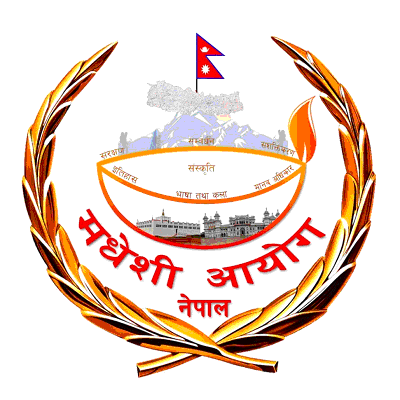
-Logo.png)
-Logo.png)
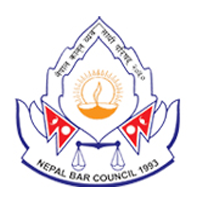
.png)
